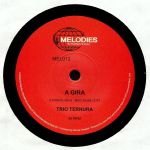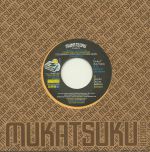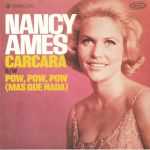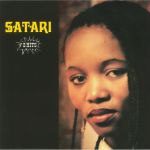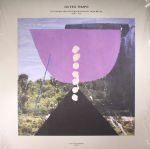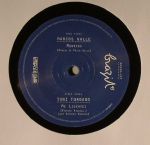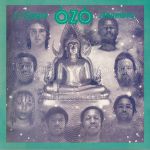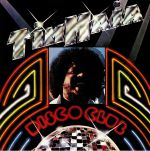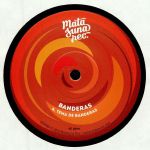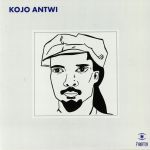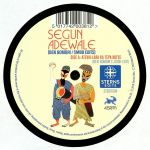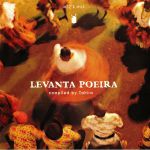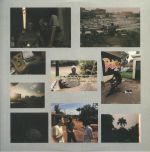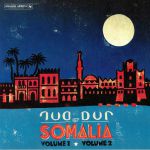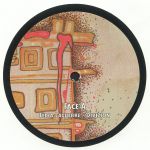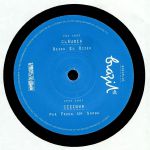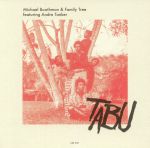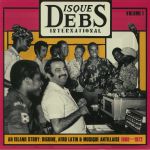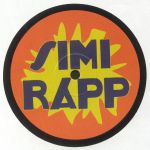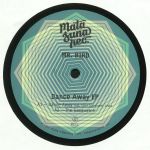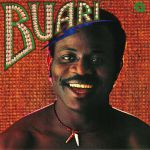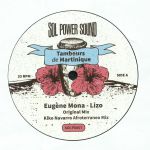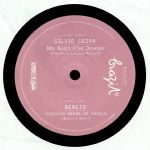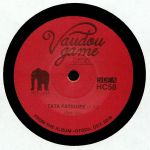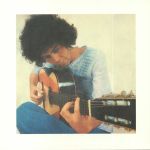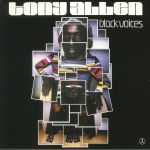安全なお買い物
Studio equipment
Our full range of studio equipment from all the leading equipment and software brands. Guaranteed fast delivery and low prices.
安全なお買い物
DJ equipment
Our full range of DJ equipment from all the leading equipment and software brands. Guaranteed fast delivery and low prices. Visit Juno DJ

Juno Recommends International
Juno Recommends International Best of 2018
3 Dec 2018
Read more...
1
out of stock $12.25
2
Cat: MUKAT 055. Rel: 17 Sep 18
International
Review: For this 7" single, label boss Nik Weston took a deep dive into the vast back catalogue of Discos Fuentes, Columbia's oldest record label (it was founded in 1934, fact fans). On the A-side you'll find "A La Memoria Del Muerto" by long serving salsa outfit Fruko Y Suis Tesos, a typically jaunty, dusty and celebratory workout that was originally released on a now hard-to-find 7" single sometime in the early 1970s. Over on the B-side, Weston takes us on a trip to the early days of Cumbia via El Combo Los Galleros's brilliant 1963 album cut "Soledad", which still sounds heavy, punchy and intoxicating 44 years after it was recorded, and has been a staple in the bags of top selectors such as Hunee, Red Greg, Kai Alce, Dom Servini & Craig Charles from BBC 6!
...Read more
out of stock $7.56
3
Review: During the days of Dingwalls' legendary jazz-dance and rare groove nights in the 1980s, it wasn't uncommon to hear Nancy Ames "Caracara" surging from the speakers. An infectious Latin Jazz/Easy Listening floor-filler first released on the American singer's 1966 album Latin Pulse, it has long been something of a favourite amongst both DJs and dancers. Here, it gets the reissue treatment on 7" from the cool cats at Dynamite Cuts, backed with 1967 gem "Pow, Pow, Pow", a killer, bi-lingual cover of Sergio Mendes' favourite "Mas Que Nada". This, too, is simply superb.
...Read more
out of stock $12.78
4
Review: It was way back in 1986 when South African singer Satari released her one and only single, a double A-side affair featuring "Malebu" and "Smile". It's the latter that rightly gets the reissue treatment here. Breezy, melodious, synthesizer-heavy and undeniably positive, the track offers a particularly Balearic take on boogie-infused, mid 1980s synth-pop. This time round, the track comes backed with another '86 Sidwell Duda production, Nicky Love featuring Satari's "Nobody To Love". It's every bit as delicious as the A-side, even if it does stick a little more closely to the early '80s New York disco-boogie blueprint. In other words, these are two fine, forgotten gems that are deservedly being given a new lease of life.
...Read more
out of stock $14.87
5
Review: This "Special Edition" of Lord Echo's recent third full-length, Harmonies, seems to be aimed at DJs. Whereas the original pressing contained the same tracks on one piece of wax, this version stretches the same tracks over two super-loud, heavyweight records. Formatting aside, the album itself is something of a head-in-the-clouds, feet-on-the-floor treat. It features the Kiwi producer working with a range of collaborators - Tony Laing of Fat Freddy's Drop and regular studio buddy Mara TK included - to serve up intoxicating cuts that brilliantly fuses reggae, dub and rocksteady rhythms with elements borrowed from disco, Afro-soul, Afro-funk, spiritual jazz and, more surprisingly, techno. It's a hugely vibrant and entertaining set, offering a good balance between dancefloor vibrations and more laidback concoctions.
...Read more
in stock $19.81
6
VARIOUS
Cat: SNDWLP 125. Rel: 09 Jul 18
International
out of stock $19.81
7
VARIOUS
Cat: MFM 016. Rel: 19 Mar 18
Experimental/Electronic
Review: Music From Memory has a reputation for doing the unexpected. It would be fair to say that few would have predicted the Dutch label's decision to release a collection "electronic and contemporary music from Brazil". As usual, the Red Light Records affiliated crate-digging crew has done a superb job with Outro Tempo, which was compiled by label affiliate John Gomez. Musically, it's predictably varied but always beautiful. It mostly focuses on tracks that fuse traditional Brazilian instrumentation, percussion and musical ideas, with elements of electronica, ambient, jazz-fusion and Reich style minimalism. The accompanying liner notes do a great job in putting the collection in context, explaining how the music was often inspired by political changes within Brazil during the 1980s.
...Read more
in stock $31.27
8
Review: Two premium Latin funk documents on one limited 45, Mr Bongo deliver once again: Marcos Valle needs no introduction to Brazilian music enthusiasts. "Mentira" is a self-cover as Valle takes his 69 classic "Mentira Carioca" and develops the dynamic with a vocal style that's highly reminiscent of Donovan. Flip for Toni Tornado's Black Rio anthem "Me Libertei". Fusing sleazy rock n roll with jazzy Latin soul, madly this is the first time it's ever graced a 45!
in stock $9.12
9
Review: DjeuhDjoah and Lieutenant Nicholson are French composers and Afro-soul singers whose 2016 album on Hot Casa is a perfect summer soundtrack. This cheeky 7" actually features two of the standout tunes from their equally essential 2019 album Aimez Ces Aires. 'El Nino' is a a real summer classic, with falsetto vocals singing about how hot it is with big horn leads and funky drums getting that party started. 'Fontaine (Drink Drink)' is a deeper cut with xylophone sounds, hand claps and a warm, organic feel that is again set to get temperatures rising this summer.
...Read more
out of stock $15.63
10
Review: Seminal cosmic afro record from 1976, this Mancuso staple regularly passes hands for triple figures and has been bootlegged (badly) many times over the years. Here we find the deeply spiritual and reasonably prolific troupe in all their glory. Mystic, restrained, paced and laced with an insistent almost hypnotic Buddhist mantra. "Anambra River" takes us six years closer to the floating crystal city of Budatan, shire of West Heaven with a Morricone sense of drama and emotion. Unleash your inner hippie.
out of stock $15.38
11
out of stock $21.89
12
Review: Banderas are that most rare of beasts: an eleven-piece salsa band from Japan. While they've been active for a while, their recorded output has been limited, to say the least. The two tracks featured on this tasty 7" were first featured on the band's 2016 debut release, which was never released outside of Japan. It's undoubtedly great that they're finally available to a wider audience, because both are potent dancefloor workouts. With its atmospheric, "barrio atmosphere" opening, jaunty piano build-up, punchy horns, sing-along Cuban style vocals and scorching salsa rhythms, A-side "Tema De Banderas" is particularly effective. That said, bustling B-side "Banderas Mambo", with its heavier rhythms and rousing mambo horn lines, is also pretty darn hot.
...Read more
out of stock $7.82
13
out of stock $12.25
14
Review: On this fine EP from the Sterns Edits camp, Ben Gomori and SMBD (AKA Gilles Peterson favourite Simbad) take it in turns to rework cuts from 1980s Nigerian star Segun Adewale. On the A-side, Gomori gets to work on "Atewo-Lara Ka Tepa Mo'se", wrapping Adewale's original vocals and glistening juju guitar solos over a rolling, Ron Trent style Afro-deep house groove. It's super-sweet and wonderfully summery, suggesting we'll be hearing it in more than a few DJ sets over the next few months. Simbad, meanwhile, serves up two versions of "Ojo Je": a hustling, polyrhythmic disco excursion (the "SMBD '85 Raw Disco Mix") and a far deeper and more trippy excursion rich in warm sub-bass, reverb and delay-laden vocal snippets and ricocheting synthesizer motifs (the superior "Rascal Dub").
...Read more
out of stock $10.17
15
out of stock $17.21
16
Review: The third release on Manchester's Banana Hill label comes from Kawuku Sound, the product of a bold cross cultural collaboration between British producers Contours and Cervo and Ugandan percussion troupe Fonkodelis Arkestra. In a sign of the ever-dissolving cultural boundaries of the world, the end result of the recording sessions in Uganda is fluid and engaging as subtle synth strokes merge with a plethora of hypnotising, energising rhythms. At times the beats take centre stage, as on "Lost In Sound," and elsewhere they sit in harmony with the electronic atmospherics Countours and Cervo conjure up.
...Read more
out of stock $16.17
17
Cat: AALP 087. Rel: 17 Sep 18
International
Review: In the expansive sleeve notes accompanying this superb triple-album, Analog Africa founder Samy Ben Redjeb accounts, in great detail, the epic tale of Dur-Dur Band, a Mogadishu-based deep funk outfit that took Somalian radio by storm during the early 1980s. It's a remarkable story, all told, but nowhere near as remarkable as the music contained on this essential retrospective. Redjeb has managed to license both of their previously cassette-only albums, stretching them across three slabs of wax. Brilliantly played and performed, the songs mix killer American and African style funk grooves with hooky Somalian vocals, spacey synths and occasional nods towards other styles (most notably reggae on later period cut "Diinleeya" and Juju on "Salkuu Dhigey"). Simply essential.
...Read more
out of stock $27.63
18
in stock $20.85
19
in stock $9.37
20
Cat: CRS 509. Rel: 26 Feb 18
International
out of stock $10.17
21
VARIOUS
Cat: STRUT 187LP. Rel: 02 Jul 18
International
in stock $28.94
22
out of stock $13.04
23
Review: Having previously excelled at crafting party-starting bootleg funk remixes and composing revivalist soul slammers, Mr Bird has now decided to turn his attention to Afro-disco, Afro-funk and Afro-soul. Typically, the results are impressive, particularly "Dance Away", a hybrid Afro-disco/Afro-soul workout featuring the fine vocals of Chief Commander Yaaba. Elsewhere, he lays down a subtly housed-up take on Clavinet-happy Afro-funk (the superb, jazz-funk tinged "Floating Funk"), brilliantly breaks up the beats on the woozy, groovy and bustling "Carnival Beat", and lays blissful vocal harmonies over a sumptuous deep house beat on "The Sasquatch".
...Read more
out of stock $11.46
24
Review: Mr Bongo's crate-digging compilation series - described by the imprint as a "chance to champion tracks we've been playing in our sets" - returns and, predictably, this second volume is every bit as good as its predecessor. Naturally, there's a fair amount of Brazilian and African gems present, as well as a wealth of little-known disco, soul and funk cuts that will have DJs scrambling to find copies of the original 12" or 7" singles. Highlights are plentiful and include - but are not limited to - the punchy disco-funk of Dee Edwards' "Put Your Funk on the Line", the South African bubblegum brilliance of Kiru Stars, the sun-soaked peak-time samba of Tomu Dito and the Meters-go-to-Nigeria vibes of "Harari" by the Beaters. And that's just for starters.
...Read more
in stock $21.89
25
Review: Produced and sleeked out at Opal Studios in NYC, back in 1975, Buari's self-titled LP has been a cornerstone of international highlife music since it was first released. The original is now an arduous item to find at a decent price, so we thanks the Be With label for having repackaged an essential Afro LP that is a must have for anyone into anything outside a constant beat drum. "Karam Bani" opens with a forceful helping of funk, percussive to to the max, and this same hypnotic groove formula is present across the entirety of the A-side, making this a sampler's dream come true. On the flip, "Iro Le Pa" is the stand-out tune for us, a rhythm that makes Theo Parrish's Ugly Edits seems kinda tame! Recommended.
...Read more
out of stock $20.85
26
Cat: SOLPS 007. Rel: 11 Jun 18
International
Review: Sol Power Sound's latest must-have 12" serves of some obscure 1980s zouk and Beguine flavours from the French Caribbean territory of Martinique. Side A is dedicated to the wonderfully percussive but surprisingly sparse (think drums, fretless bass, synths and vocals) sunshine dance that is "Lizo" by Eugene Mona. The fine original version is accompanied by a fresh take from Kiko Navarro, who subtly combines all of Mona and company's original elements with a jaunty Caribbean house rhythm. Turn to the flipside for the tropical disco-era Beguine brilliance of Max Ransay's "Ti Kanno" - think dense tropical drums, disco horns, celebratory chorus vocals and meandering synthesizer lines - and a suitably beefed up contemporary tweak from the Sol Power All-Stars.
...Read more
out of stock $13.04
27
Cat: BRZ 45071. Rel: 13 Aug 18
International
in stock $9.12
28
out of stock $8.86
29
out of stock $19.30
30
Review: Since its release in 1999, Tony Allen's Black Voices album has earned a reputation as an overlooked modern classic. While a scaled-down reissue appeared on Kindred Spirits in 2014, this edition marks the first "full repress" of the original double-album version. The Doctor L-produced set remains hugely alluring, thanks largely to the warm and attractive mixture of Allen's loose and languid Afrobeat rhythms, fluid jazz and jazz-funk instrumentation and vocals that recall the legendary drummer's work with Fela Kuti. Like the original set, you'll find a number of tasty dancefloor reworks nestled on the second disc, with the fuzzy and disco-fied PsychojujuMix of "Ariya" - complete with rubbery bass and sweaty drum solos - standing out.
...Read more
out of stock $34.15


